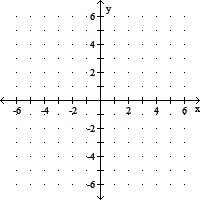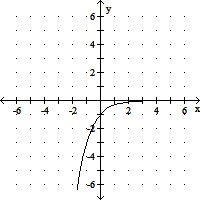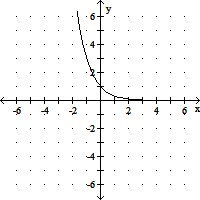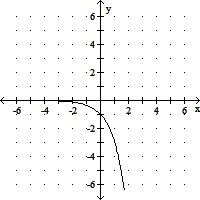Determine the possible number of positive real zeros and negative real zeros of the polynomial function using Descartes' rule of signs.f(x) = -6x5 - 8x4 - 4x3 + 5x2 + x + 16
A. 1 positive zero, 4, 3 or 1 negative zeros
B. 1 positive zero, 4 or 2 negative zeros
C. 1 positive zero, 2 or 0 negative zeros
D. 1 positive zero, 3 or 1 negative zeros
Answer: A
You might also like to view...
Graph the exponential function and state the domain and range.y =  x
x
A. Domain: (-?, ?), Range: (-?, 0)
B. Domain: (-?, ?), Range: (0, ?) 
C. Domain: (-?, 0), Range: (-?, 0)
D. Domain: (0, ?), Range: (0, ?)
Simplify the expression. Express the answer so that all exponents are positive. Whenever an exponent is 0 or negative, we assume that the base is not 0. -3
-3
A. 
B. 
C. 
D. 
What is the present value of a perpetual stream of annual cash? flows, with the first cash flow of $140 to be received in one year and with all subsequent cash flows growing at a rate of 3.3 ?percent, assuming a discount rate of 7.2 ?percent?
The present value of the growing perpetuity is ?$_____. ?(Round to the nearest? cent)
Combine the following, if possible.-20 + 13
+ 13
A. -33x
B. 34
C. -7
D. 6